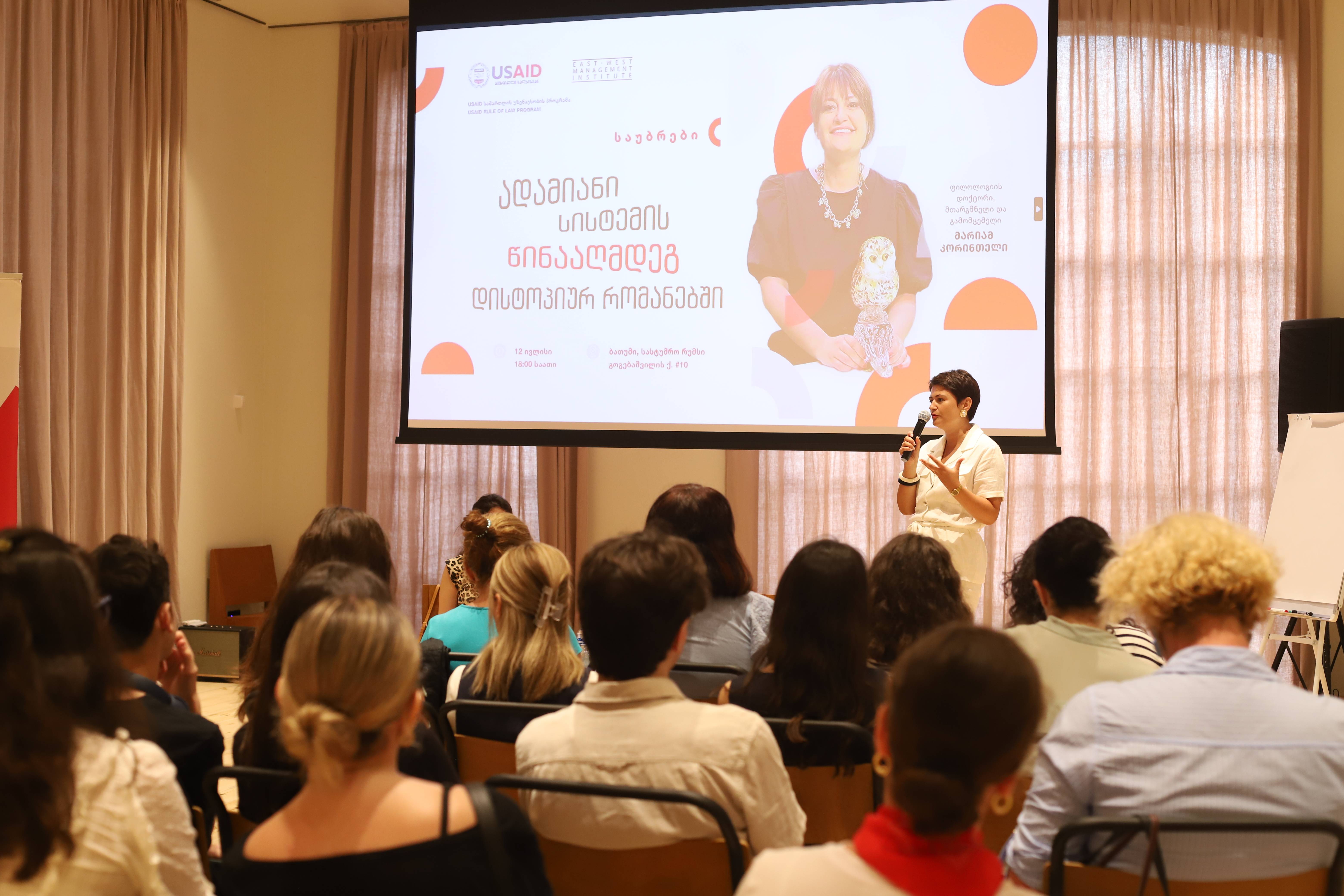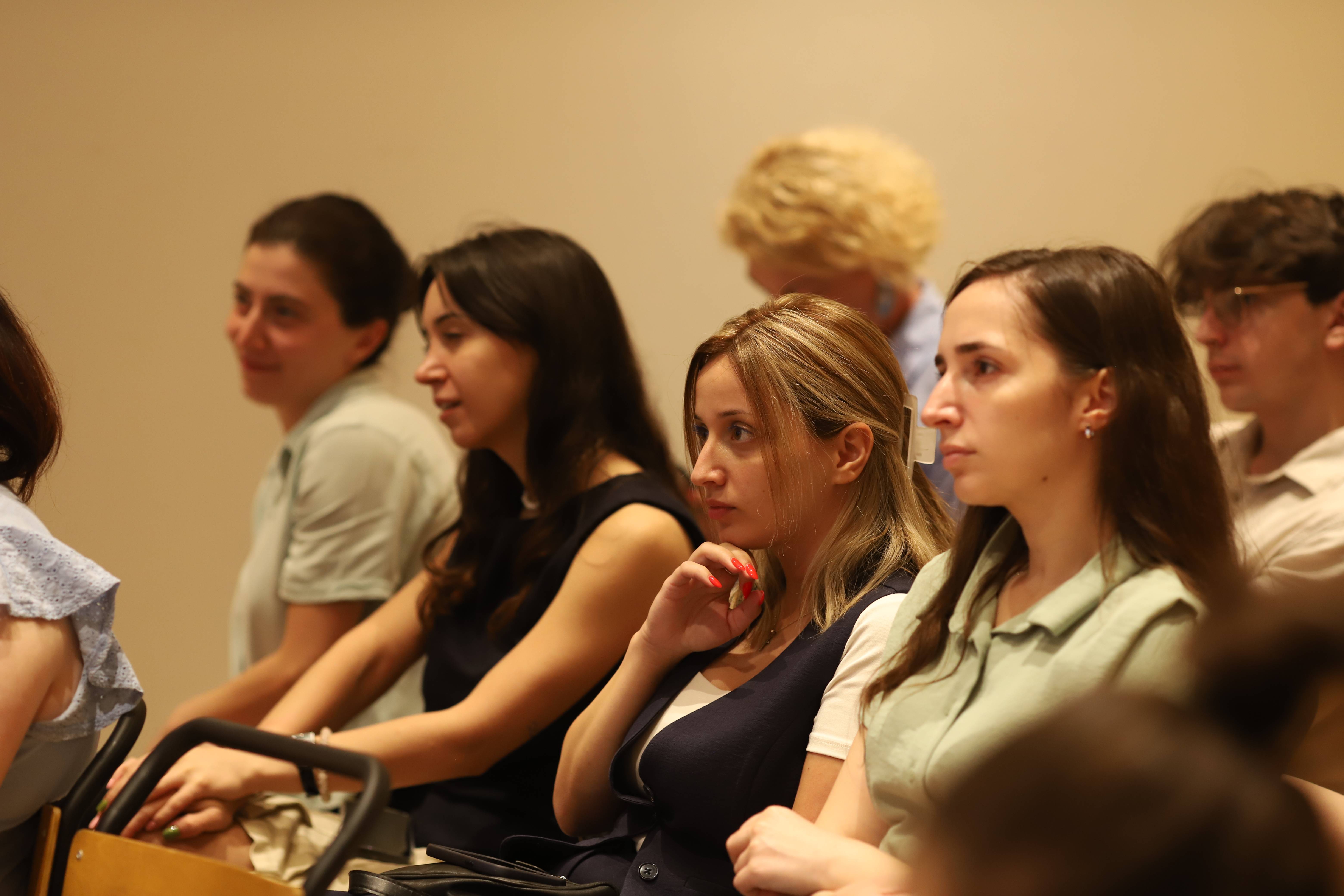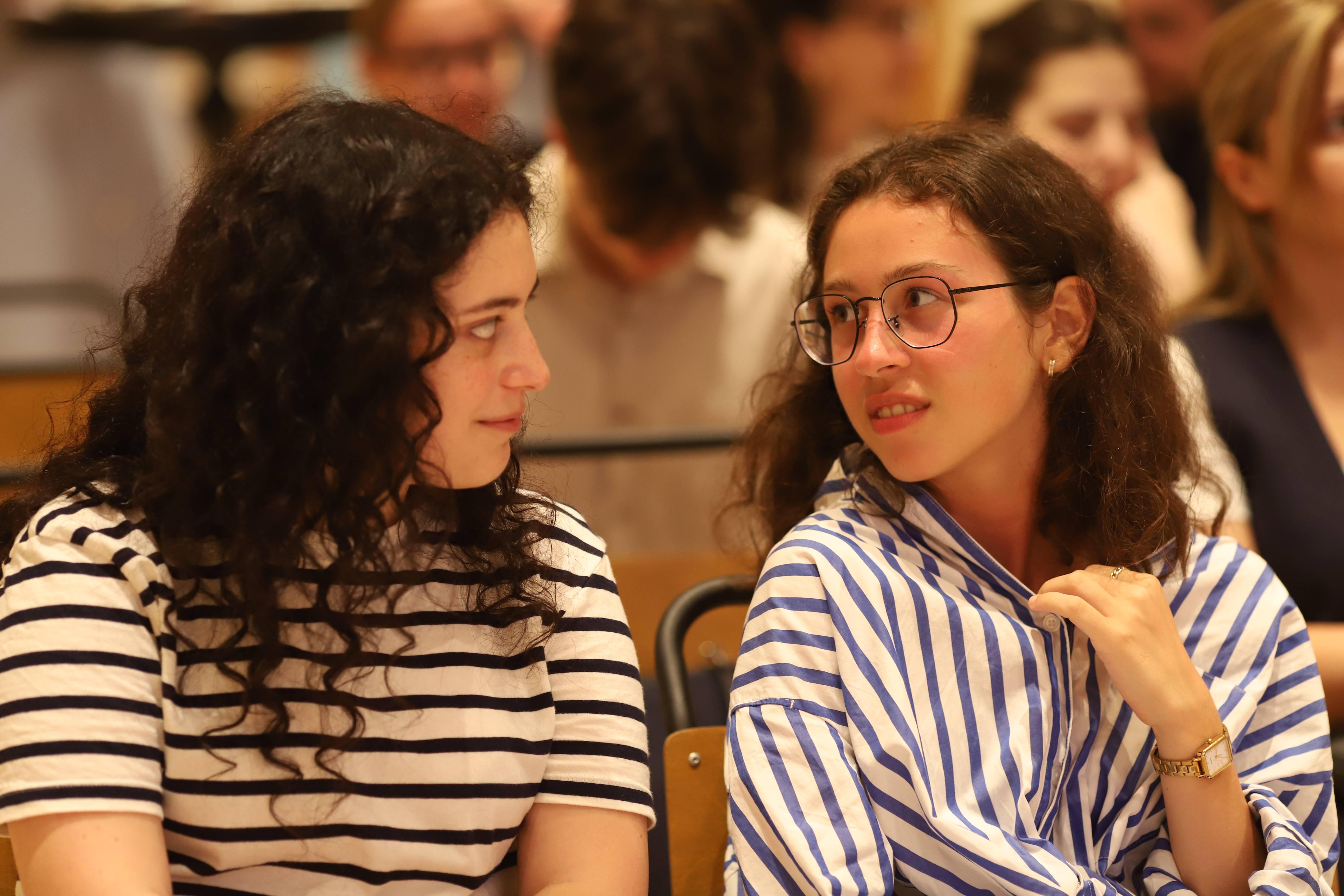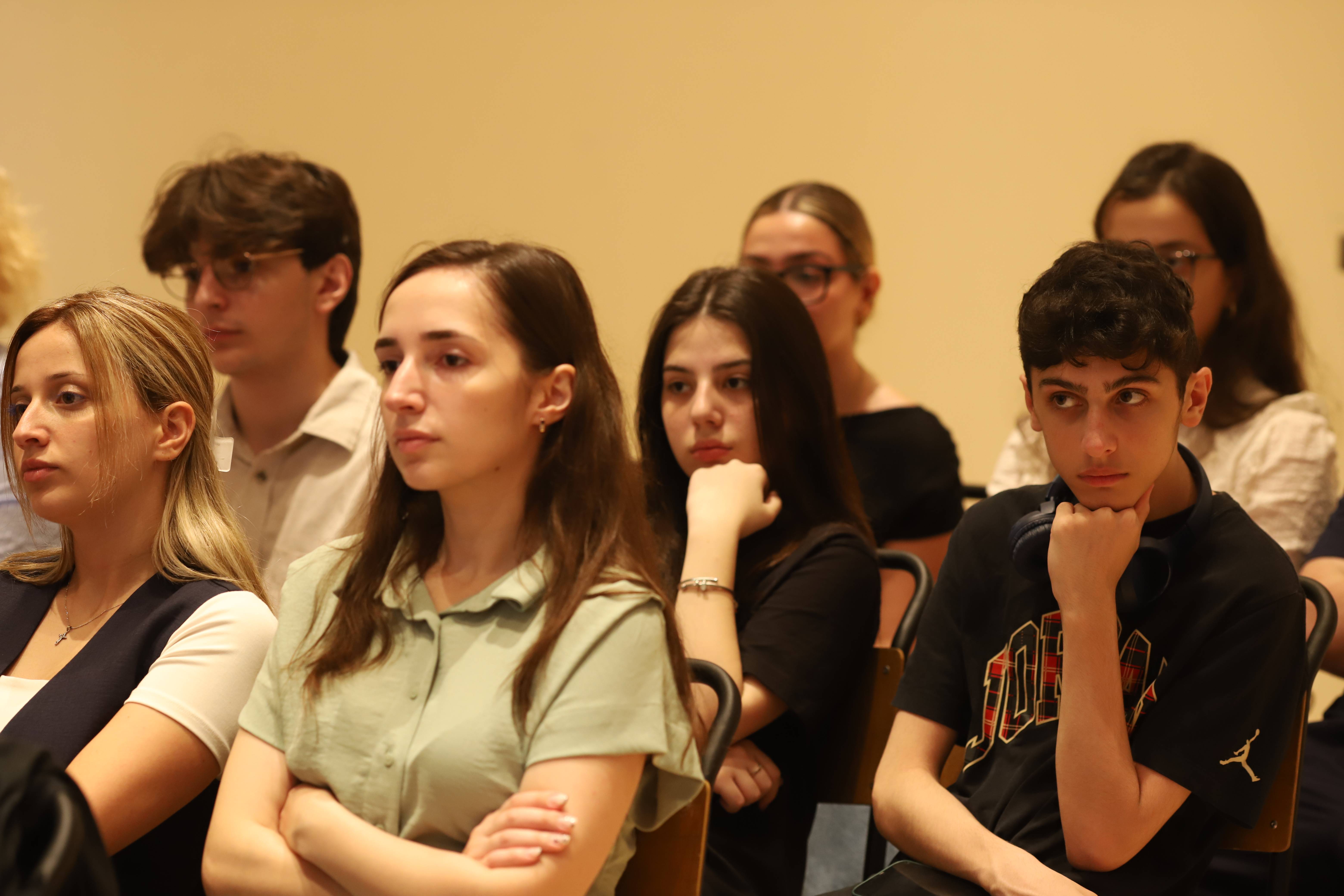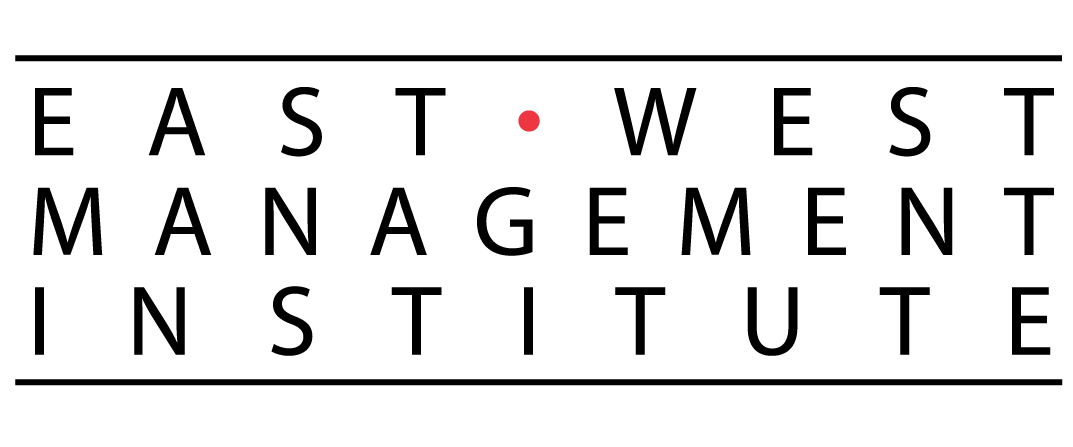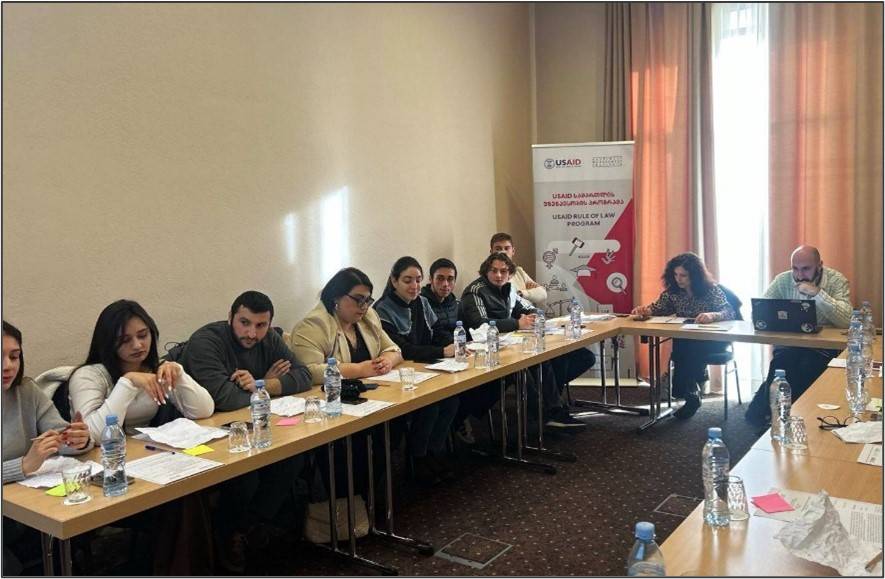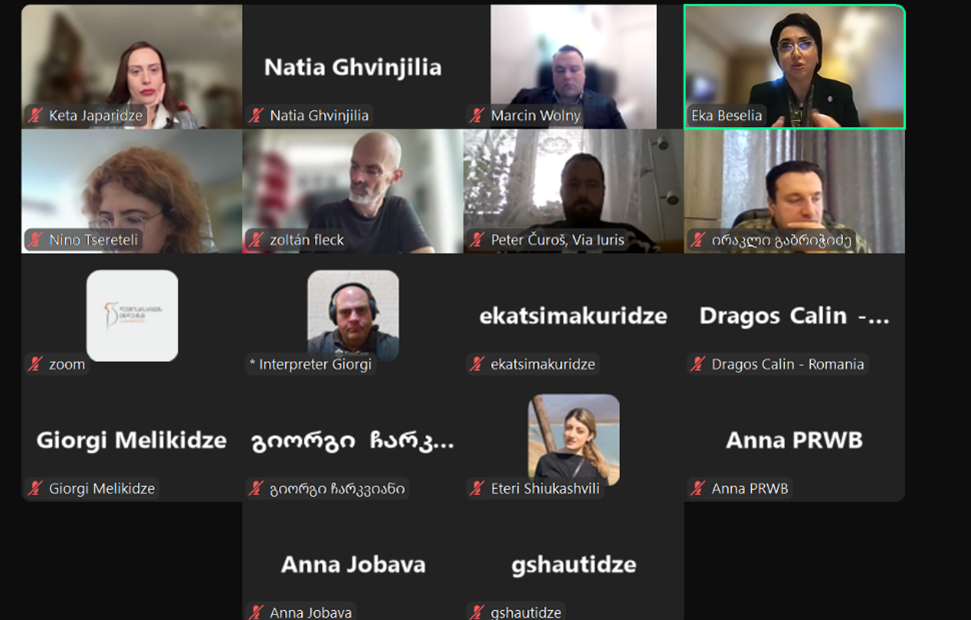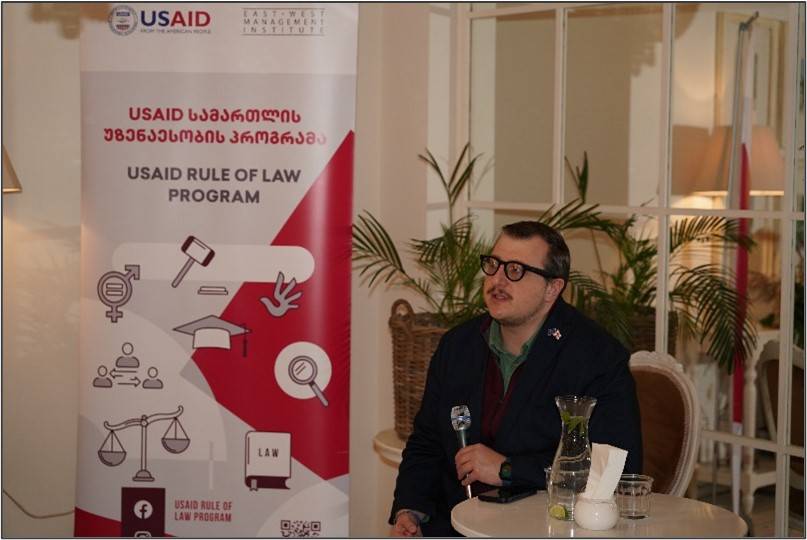Batumi Hosts Discussion on Dystopian Literature and Societal Reflections
On July 12, 2024, Batumi saw a gathering of diverse youth for the latest summer session of the USAID Rule of Law Program's public talk series. This event, titled: Individual Against State in Dystopian Romances, explored the roots of dystopian literature, its reflection of contemporary issues, and its role as a cautionary narrative on societal and governmental dynamics.
Over 40 attendees, including lawyers, students, civil activists, and citizens, engaged in a dialogue on the relevance and impact of dystopian narratives.
Esteemed publisher and translator Mariam Korinteli, also known as the owner of the intellectual game "What? Where? When?" Crystal Owl took center stage as the speaker.
Mariam began by talking about the renowned literary works that illustrate the individuals' resistance against totalitarian regimes. She emphasized the themes of individual resilience and advocacy for human rights in oppressive environments, drawing examples from iconic novels such as George Orwell's "1984," Margaret Atwood's "The Handmaid's Tale," and Ray Bradbury's "Fahrenheit 451."
Reflecting on these works, Ms. Korinteli described depictions of societies under authoritarian rule, where personal freedoms are curtailed. She highlighted the protagonists—Winston Smith, Offred, and Guy Montag—as symbols of resistance against oppressive systems. She explained how their stories serve as potent warnings against unchecked authority, the erosion of civil liberties, and the dehumanizing effects of totalitarianism.
Mariam also pointed out that not every dystopian fiction ends on a hopeful note, but regardless of the outcome for the protagonists, the small steps taken by these individuals eventually lead to significant results. She referenced Plato's Allegory of the Cave, which emphasizes the importance of questioning every assumption about reality. This, she suggested, is a powerful way to develop independent thinking and challenge the status quo.
The audience showed a keen interest in Orwell's "1984," noting its striking relevance to current global situations. Discussions centered on how the novel's themes of surveillance, propaganda, and the suppression of dissent are increasingly relevant in today's world. This connection resonated deeply with participants, who recognized the parallels between Orwell's dystopian vision and contemporary challenges to individual freedoms and human rights around the globe.
In closing, Ms. Korinteli quoted Margaret Atwood's reflection that "I am not a prophet. Science fiction is about now," emphasizing the relevance of dystopian literature in shedding light on contemporary societal challenges and political climates.
